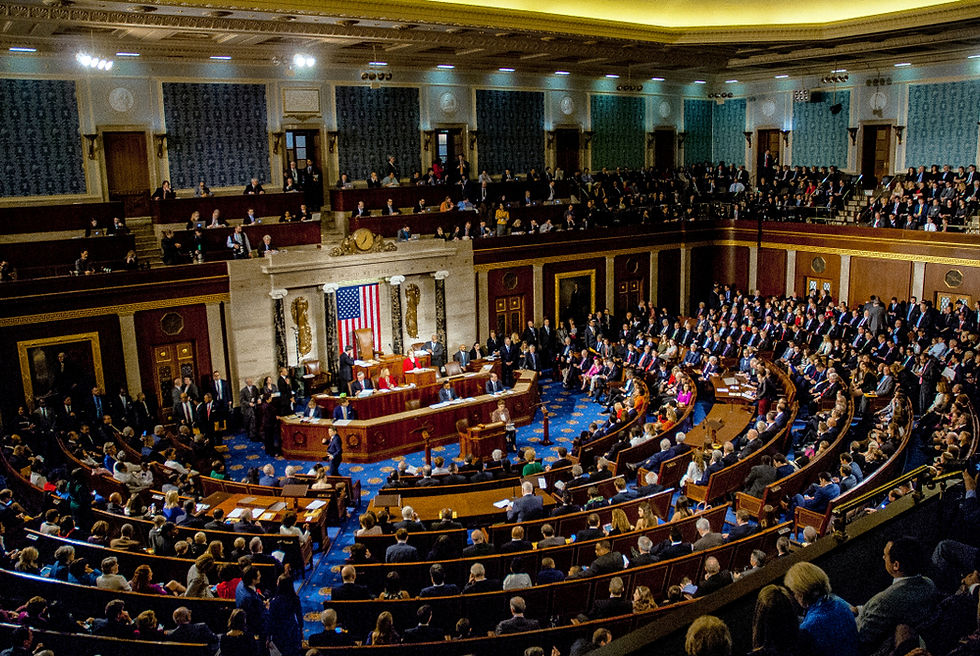Op Ed: The Return of Congressional Earmarks Invites Public Corruption
- FACT

- Feb 7, 2022
- 3 min read
Updated: Feb 16, 2022
Published by and available at The Washington Examiner.
Museums for teapots, tunnels for turtles, and alcohol for mice might seem like things straight out of Alice in Wonderland. Unfortunately for taxpayers' pocketbooks, these are all real examples of projects that Congress has funded using earmarks. Congress finally abandoned this controversial spending practice in 2011 due to public shaming over such boondoggles. But now, earmarks are coming back, disguised under the misleading euphemism "community project funding."
Many people have never heard of earmarks, and their proponents in Congress would like to keep it that way. An earmark is a provision in an appropriations bill that designates a specific amount of funding for a particular project. Usually, appropriations bills mandate a competitive, merit-based bidding process, but earmarks circumvent these safeguards and allow members of Congress to direct funds to their favorite pet projects, no matter how unworthy or superfluous.
Allowing members of Congress to pick and choose specific projects is a clear recipe for corruption. Former Rep. Duke Cunningham, a California Republican, was the personification of the unethical and reckless use of earmarks — in his case, for self-enrichment. Cunningham famously used a "bribe menu" on congressional stationery to show how much certain earmarks would cost while living on a yacht called the Duke-Stir, which itself was a quid pro quo from a defense contractor.
Earmarks are hard to track and define, making such schemes difficult to detect. This is particularly true when members are more careful about brazen displays of ill-gotten wealth.
One outgrowth of earmarks is that, even without criminal activity, powerful corporations with deep pockets can gain undue influence over the budgetary process. An investigation by a watchdog group found “that 60 percent of lawmakers who serve on the House Armed Services Committee received contributions from companies that also received earmarks in the Defense bill." An equally troubling study uncovered that for every $1 a company spent lobbying Congress, it received $28 in taxpayer funding. This behavior was completely legal, but the court of public opinion was decidedly against earmarks in the years leading up to them being banned in 2011.
Past masters of the earmark knew how to act within the law while still benefiting themselves. Take the late Sen. Robert Byrd, a West Virginia Democrat and the "King of Pork" who obtained billions in earmarks for his chosen projects. The senator didn't receive bribes for his spending, but he used it to retain political power and even has a Wikipedia pagededicated to places named after him.
While politicians and powerful special interest groups with tentacles in Washington, D.C., benefit from earmarks, most people are left behind. Former Rep. John Murtha, a Pennsylvania Democrat, carved out over $150 million in earmarks for a seldom-used airport in Johnstown, Pennsylvania, unsurprisingly named the John Murtha Johnstown–Cambria County Airport. Even as the airport reduced its flight schedule to just 18 per week (all to or from Washington’s Dulles Airport), Murtha continued to pour federal money into projects such as a never-used $8.5 million radar system.
Most earmarks were less brazen than Murtha's, but the process was the same. Neither merit nor accountability mattered; all that counted was who you knew and how much power they wielded inside the Beltway.
The laser-focused pursuit of earmarks inevitably caused governance to suffer. Too many members who rode specific issues into office were soon seduced by the culture of corruption, placing money and personal gain above their constituents. Often, members of Congress would vote for a bill, not because they thought it was good for America but because they were benefiting from a juicy earmark. Party leadership began funneling earmarks to vulnerable members, allowing them to brag to their constituents about their “work.”
A nightmare for anyone concerned with political ethics in Washington, D.C., earmarks allow for corruption and self-dealing and all at the taxpayer’s expense. The public was and is right to loathe them, Congress is wrong for bringing them back, and their return will undoubtedly lead to abuse and scandal, just like the “good old days” of earmark spending pre-2011.
Kendra Arnold is the executive director of the Foundation for Accountability and Civic Trust.

